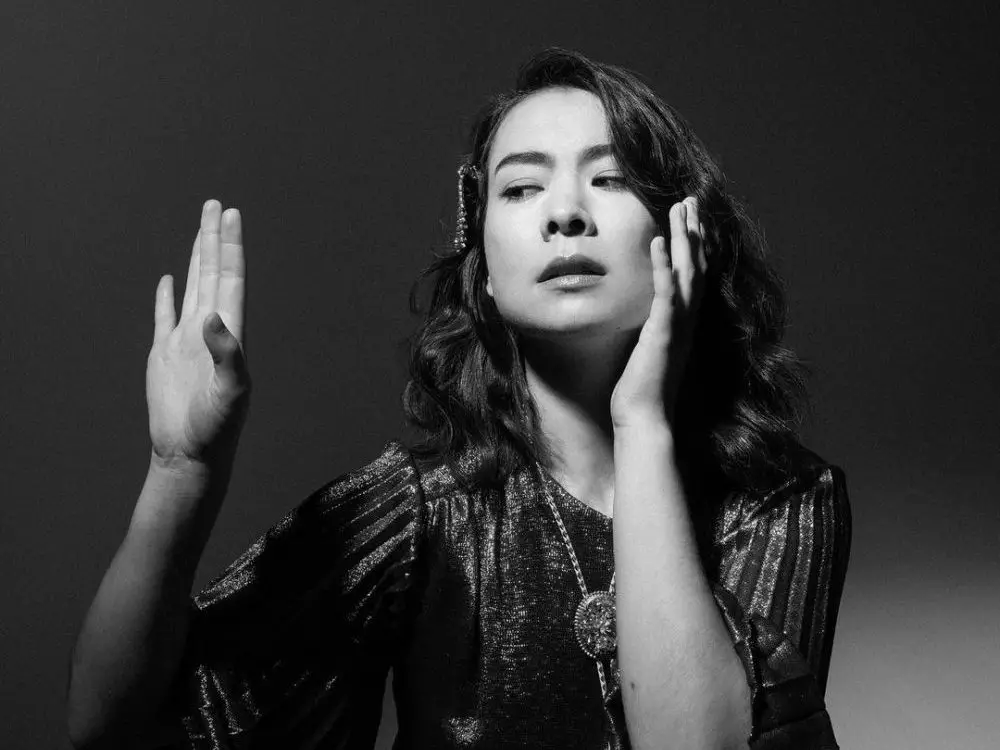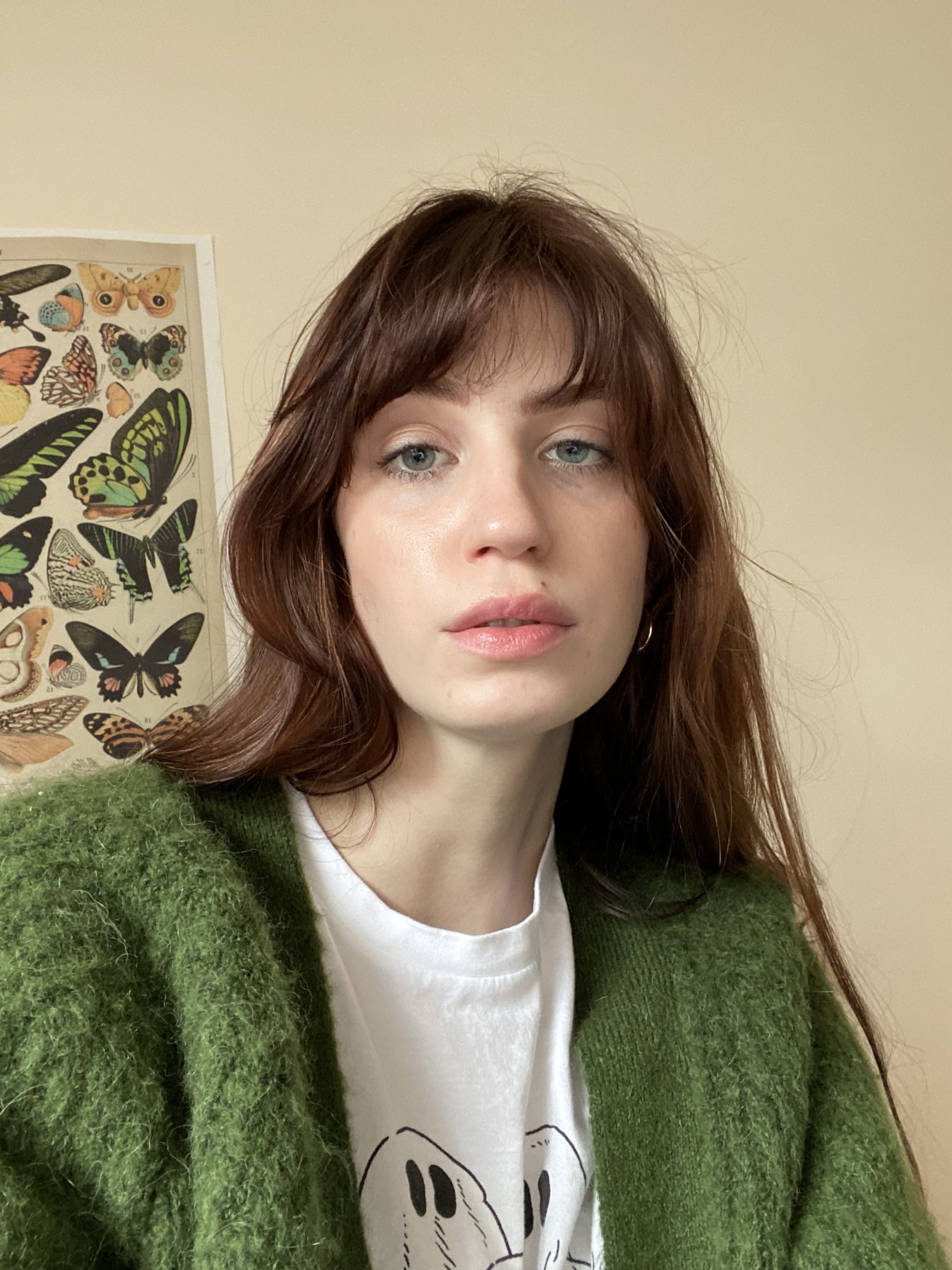Opening with a point-blank dare of lyric — “Let’s step carefully into the dark,” Japanese American indie rocker Mitski draws her audience into a space that is both liminal and filled with terror. Her new album, “Laurel Hell,” explores the place that she claims her “sweetheart’s never met” with a deliberate grace, driven home by heavy synth sounds and lyrics that jar the listener breathless. Themes such as survival juxtaposed with the insatiable desire for love, all within a world of isolation, weave their way through the 11-song EP, bringing the audience into the ghostly, desolate stage the singer has so sensually set, in a world that never seems to stop ending.
However, despite such an eerily well-crafted introduction, “Laurel Hell” was not initially planned. After her mainstream success in 2018 with her fifth studio album, “Be the Cowboy,” Mitski realized that she had “made a huge mistake” and swiftly quit the music business, determined to never return.
This abrupt decision stems from the self-sacrifice she made when launched into the spotlight, which dehumanized her into a product meant to be consumed and commodified. She isn’t wrong. Several of her songs — “Nobody” and “Strawberry Blond” — have reached a cult-like level of recognition on TikTok. On Spotify, she has over 9 million monthly listeners. But while many would embrace the sudden rise to fame, it only made her shrink further into herself, abandoning not only her music but her entire internet presence as well.
In spite of her decision, she was pulled back on stage for an encore by her record label, Dead Oceans, to fulfill the final album of her contract, thus resulting in “Laurel Hell.” And while the effort that Mitski presents with this album is nothing short of spectacular, one cannot help but notice the hint of resignation in her delectable dance-pop sound.
With the futuristic lead single from the album, “Working for the Knife,” Mitski introduces the audience to the struggle between her desire to create and what is expected of her as an artist. The opening lyrics, “I cry at the start of every movie I guess ‘cause I wish I was making things too, but I’m working for the knife,” paint a hopelessly depressing existence for listeners that is all too real.
She dismally continues in a silky drone — “I always thought the choice was mine, and I was right but I just chose wrong, I start the day lying and I end with the truth that I’m dying for the knife” — illustrating the sacrifices one must make in a capitalistic world that values consumption and commodification over creativity.
While the main statement of “Laurel Hell” pertains primarily to how fame pushes an artist to compromise their work to make it more palatable to the masses, it can also be understood as a cry for help in the face of an audience that has projected so much on to her.
Describing herself as “a black hole that people can dump their feelings into,” she definitively puts up walls around herself as an act of self-preservation against the barrages of expectations. The advice she offers to her listeners comes in the soul-punched “Stay Soft” where she imparts a valuable lesson — when you “stay soft” you “get beaten” and it’s “only natural to harden up.”
However, the true complexity and captivating nature of “Laurel Hell” lies in the blatant contradiction between the disgust that comes with having a spotlight searing into you, and the need to be adored.
In the glittery “Love Me More” that straddles the middle point of the album, Mitski poses this predicament well: She is torn between keeping herself isolated from the world and from the fame she has cultivated so she won’t “make the same mistakes,” and surrendering herself over completely to someone else’s affections to “clean [her] up.” With the repetitive “I need you to love me more, love me more, love me more” over an extremely danceable orchestration, listeners of this pop fantasy are tempted to break a sweat, shed a tear, or both — a skill that the indie rockstar seems to exercise well.
Following this explosion of sound comes the quiet contemplation of what the future holds. While the subject matter for Mitski’s future work lurks in the background of many of the fantastical sounds of “Laurel Hell,” she has yet to figure out that complicated relationship between balancing fame and inner peace.
The first step toward that seems to be making peace with what you cannot control, simply described in the resigned static of “Heat Lightning,” in which she sings with a sigh — “There’s nothing I can do, not much I can change, so I give it up to you, I surrender.” Maybe this is the album’s entire purpose: surrendering to the dark parts of your soul, giving in to the need to be seen even when it seems that no one understands.
In her own words, Mitski claims that she “needed songs that could help me forgive both others and myself. … I needed to create this space mostly for myself where I sat in that gray area.”
That gray area is where “Laurel Hell” leaves us, not quite resolved but satisfied in what we have been given. In a world that prioritizes efficiency to churn out products that lack a spark of soulfulness, listeners catch a glimmer of hope in the soothing conclusion’s message — even those who seem to have it all are often the most lost.
As a parting gift, Mitski concludes with the contemplative yet sincere “I Guess,” in which she peers through the cracks in the wall she has constructed, whispering sweetly — “From here I can say thank you.” After being tossed around in a disco of desire and demands, she takes the hands of her audience and guides them out of the darkness that she deliberately introduced, brandishing a lantern of hope and lighting the way for change.

















